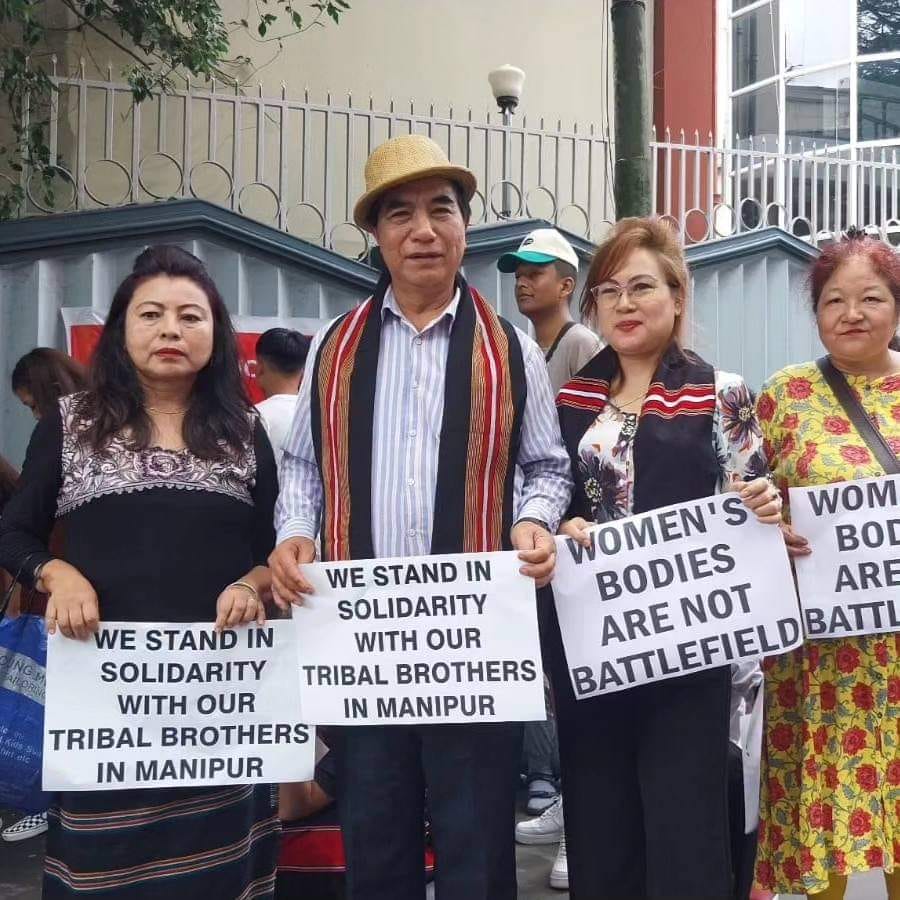New anti-corruption party wins Mizoram state elections
Created in 2017, the Zoram People's Movement (ZPM) defeated the Mizo National Front (MNF), whose leader Zoramthanga had appealed to Zo nationalism during the election campaign. Identity politics did not resonate with voters who, experts say, are tired of nepotism and a lack of development and vision.
Aizawl (AsiaNews/Agencies) – The north-eastern Indian state of Mizoram held assembly elections last month with results released today, a day later than in the other Indian states were voting also took place recently.
The outcome, experts note, represents a historic change. The Zoram People's Movement (ZPM), a party created in 2017, defeated the Mizo National Front (MNF), whose leader Zoramthanga had appealed to Zo nationalism during the election campaign.
The Mizo people share ethnic ties with Kuki groups in the neighbouring Indian state of Manipur as well as in Myanmar’s Chin State. In the past two years, due to the civil strife in the former Burma, thousands of people found refuge in the two north-eastern Indian states.
Led by Lalduhoma, a former police officer, the ZPM won 27 out of 40 state assembly seats (with 37.86 per cent of the vote), promising a new, “corruption-free government”. Compared to the last election in 2018, the MNF saw its seat count drop from 27 to 10 (with 35.1 per cent of the vote).
Since its creation in 1987, Mizoram has been governed only by the Indian National Congress, the main opposition party at the national level, and the Mizo National Front.
The crises in Manipur (where violent ethnic clashes broke out in May) and Myanmar “have evoked sentiments of a larger brotherhood,” but they “did not have any real impact on voting behaviour in Mizoram,” writer and political analyst CV Lalmalsawmi told Scroll.
At the national level, the MNF is part of the ruling alliance led by Prime Minister Narendra Modi's Hindu ultranationalist party, the Bharatiya Janata Party (BJP).
Due to propaganda against religious minorities, including Christians, many oppose the MNF or viewed it with suspicion, this despite the fact that Zoramthanga announced that he would not share the stage with Modi during the election campaign. On the contrary, he said he would continue to urge the central government to take in all the refugees.
Lalduhoma, who is set to be the next chief minister, also said that Mizoram will continue to host refugees and displaced people from Manipur and Myanmar, noting that “The issue is humanitarian”.
Ethnicity and identity politics did not, however, play any major role in the vote; instead, promises to fight corruption and nepotism echoed favourably with voters, as accusations stuck to the outgoing MNF administration.
Zoramthanga himself has been accused of awarding contracts to close relatives and changing laws in favour of non-tribal leaders, while financial mismanagement in recent years has led to delays in paying salaries and pensions to civil servants, fuelling growing disaffection in the population.
“People were tired of both the MNF and Congress,” said Joy L K Pachuau, academic and author of a book on the Mizo Identity. “There were allegations of corruption, a disappointment about the lack of development and vision.”
The ZPM, on the other hand, has never been in power, and fielded sportspeople and academics as candidates. People “voted for the hope of change," Pachuau explain ed.
For Lalduhoma, the ZPM’s victory is a "political renaissance", made possible by the vote of young people and the urban middle class, as well as large sections of the rural population.
“We have not seen such participation of the masses,” he told Scroll. “The young and first-time voters were very much in our favour and they voted for a better, efficient and corruption-free government.”







.png)










